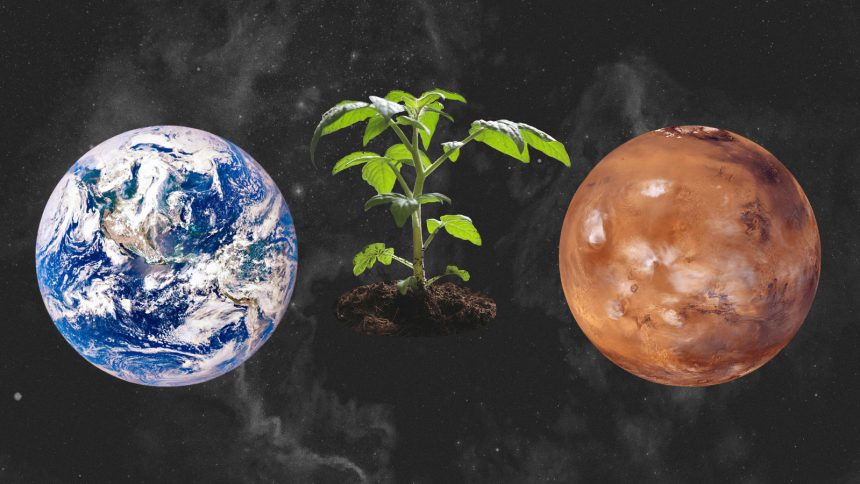The first thing Brazilian astrobiologist Rebeca Gonçalves remembers learning as a child was the order of the planets. Her uncle, an astrophysicist, also taught her all about the constellations dotting the night skies over Sao Paulo. “Ever since I was little, I have been in love with space,” she said.
That passion led to a career in space agriculture, focusing on figuring out how to grow food on other planets. Gonçalves, who is descended from the Kambeba, an Indigenous tribe in the Amazon rainforest, believes it is essential not only to explore distant worlds but also to preserve our home planet.
Her latest research, conducted at the Wageningen University & Research Centre for Crop System Analysis, explores the potential of an ancient Maya farming technique called intercropping on Mars. Published in the journal PLOS One, the findings show promising results for growing crops in the harsh conditions of the Red Planet.
Intercropping, the practice of planting different crops in close proximity to increase yield and nutritional value, has shown to be effective in combating the impacts of climate change and unsustainable farming practices on Earth. The experiment in simulated Martian regolith demonstrated the potential of intercropping to enhance crop yields and sustainability.
While the focus may seem distant, the ultimate goal of space agriculture research, according to Gonçalves, is to develop solutions that benefit Earth. By understanding how to grow crops in extreme conditions on other planets, we can apply that knowledge to address challenges here at home, such as water scarcity and degraded soils.
The study reveals that innovative agricultural methods developed for space exploration could have practical applications for restoring depleted farmland and enhancing food security in vulnerable regions. By leveraging technologies developed for Mars colonization, we may also find solutions to address food insecurity closer to home.
Although challenges exist in adapting these solutions to regions where they are most needed, the potential of space agriculture to transform farming practices and improve food security on Earth is undeniable. With a growing interest in space farming and billions of dollars in investment, the field is poised to make significant contributions to addressing global food security issues.
While some experts believe soilless growing methods may be more suitable for Mars colonization, Gonçalves’ research highlights the importance of quality soil for sustainable food production, both on Earth and in future space missions. By incorporating traditional agricultural techniques with modern innovations, we may find solutions to pressing challenges facing our planet.
As we continue to explore the possibilities of space agriculture, we are not only reaching for the stars but also striving to protect and preserve the delicate balance of life on Earth. Gonçalves’ work exemplifies the intersection of cutting-edge science and environmental stewardship, offering hope for a sustainable future for generations to come.






